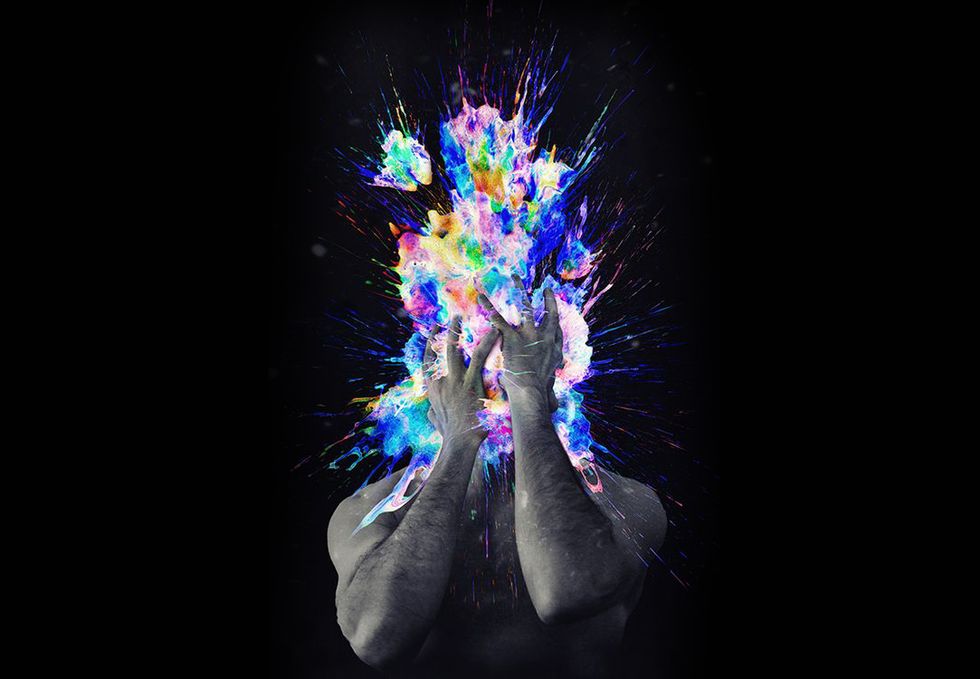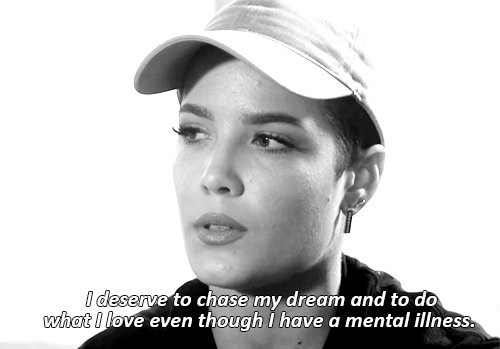When most people hear the word “bipolar” they may instantly think of someone who is happy one minute and then sad the next, but unfortunately the disorder is more complex than just happiness and sadness. Bipolar also includes agitation, irritability, suicidal thoughts, crying spells, anxiety, panic attacks, and much more.
Bipolar disorder is characterized as a mental illness in which a person experiences episodes of mania/hypomania and major depression. These episodes may vary from person to person in intensity and duration. Those that live with the disorder usually take medications to manage their moods. Bipolar disorder heavily affects a person’s energy levels, moods, and sleeping schedule.
After years of experiencing major depression, I began to notice myself having strange outbursts of energy that lasted for days at a time. By the time I was a sophomore in high school, my little outbursts became more rapid and severe. I’d stay up all hours of the night listening to music and filling up my journals with racing thoughts and grandiose ideas that filled my young mind.
Being bipolar has made my life a challenge since I could ever remember. I was diagnosed when I was eighteen years old, after years of not knowing what was particularly wrong with me. After being diagnosed, things in my life just began to make sense.
So what does a bipolar episode exactly feel like? Well, people who have bipolar disorder live in three different realities: stable/normal, depressed, and manic/hypomanic. These three realities make it difficult for those with the disorder to live a consistent and stable life as their moods, energy, and goals change and fluctuate over the years.
The severity and length of a bipolar episode really depends on the individual’s condition and their diagnosis type. I experience rapid cycling and I have bipolar II disorder, which means that I experience four or more episodes a year and I tend to experience a lot more depression than hypomania.
When I experience a bipolar episode, it tends to be different every time. It may sometimes only last for a few hours and other times it may last for weeks. The severity may also be different from episode to episode.
The first sign that I may be entering a hypomanic episode is the lack of sleep. I’ll spend nights awake in my room and still manage wake up at 4AM to 5AM without a problem. Second, I’ll start to feel jittery and restless as my mind begins to buzz with thoughts and ideas that go a million miles a minute. Then within only a few hours to a few days, I’ll manage to be super productive, abnormally energetic, and grandiose. My self-esteem skyrockets and I may engage in risky and impulsive behaviors including shopping sprees, substance abuse, promiscuity, and getting into arguments with others.
Hypomania isn’t all happiness though. I also experience panic attacks, anxiety, guilt, regret, and a series of racing, intrusive thoughts that make my head spin as I fall into a pool of tears. For people with severe manic episodes, psychotic features may begin to arise.
And as the mania overwhelms me, I suddenly feel myself crash into a deep pit of depression that leaves me feeling lifeless and burnt out. With my particular condition, my depressions can last for months at a time, but usually they only last two to three weeks.
Once I’m in depression, I lose all interest in the things that kept me busy when I was hypomanic or stable. I may shift all my goals and aspirations and change who I spend my time with.
Sometimes the depression gets so bad that I begin to wonder if it’s even worth it anymore. I grow tired of my extreme ups and downs and I begin to question suicide and self-harm. Sometimes the depressions and hypomania get so bad that I’ll self-medicate with drugs and alcohol.
56% of people diagnosed with bipolar disorder have also experienced addiction in their lifetime. This is because a person with the disorder may find comfort in substances to slow down their manic behaviors and thoughts or to self-medicate their merciless depressions.
Personally, I have had my fair share of substance use and I have been referred to treatment centers and AA meetings over the years. When I was just fourteen years old, I developed addictive behaviors towards alcohol and since then, I have been working hard on having a healthier relationship with it.
Once the bipolar episode is over, life can be difficult. Your moods may feel stable again, but now it is time to take responsibility for all the tasks and goals you decided to take on while manic. Now it is time to catch up on all the schoolwork and responsibilities you stopped doing when you were depressed.
You have no idea when the next episode might occur, so you must be prepared and recognize your triggers.
I am still young and learning to live with this disorder that has made my life a living hell at times. Today, I am taking my several medications to manage my moods, but that does not make everything completely better. I will still experience the occasional ups and downs just like everyone else.
I’m also under persistent care from a therapist and psychiatrist and my doctor and I couldn’t be more thankful for how helpful they’ve been throughout the years.
Living with bipolar is difficult. It can be relentless and cruel at times, but at the end of the day, it makes us stronger and more in touch with the suffering of others.


















